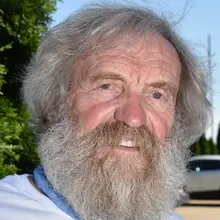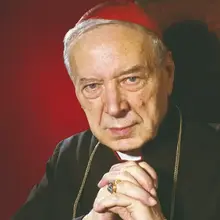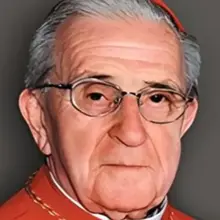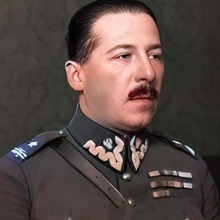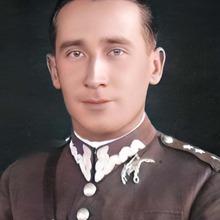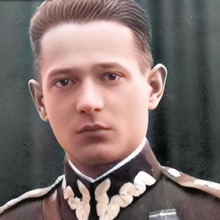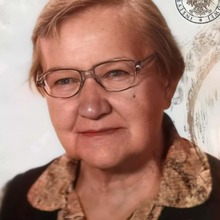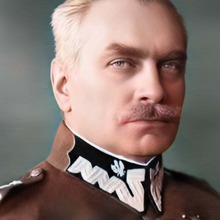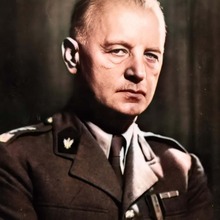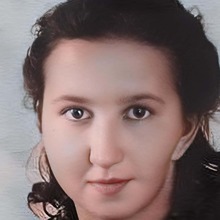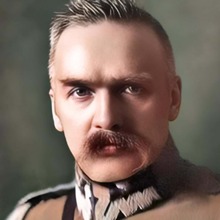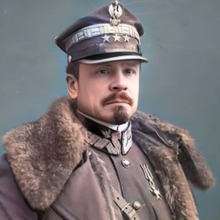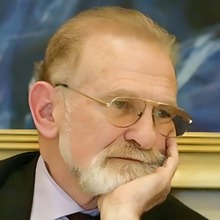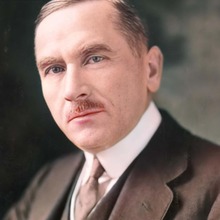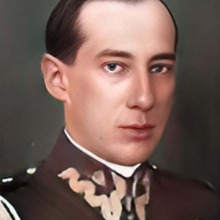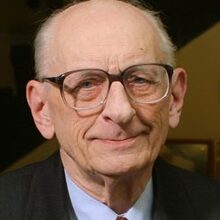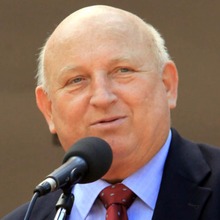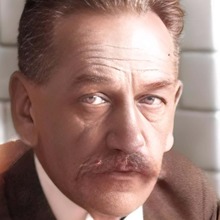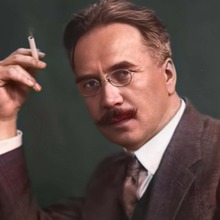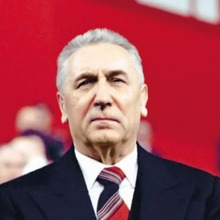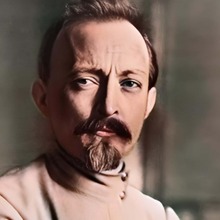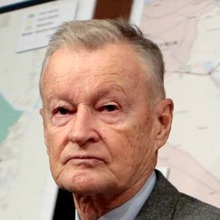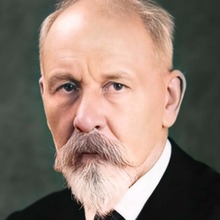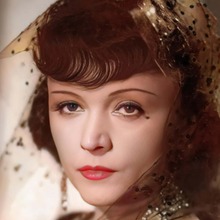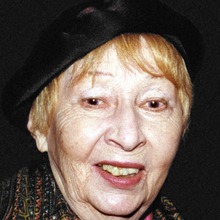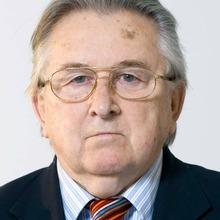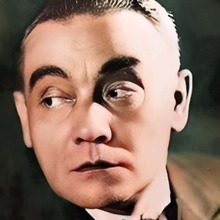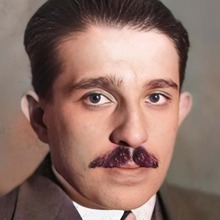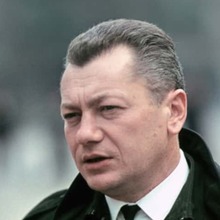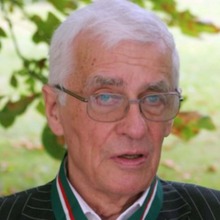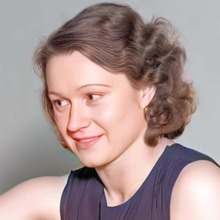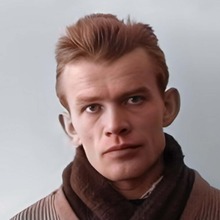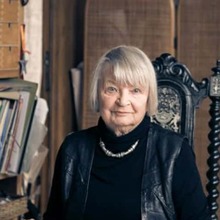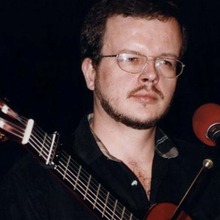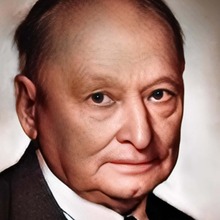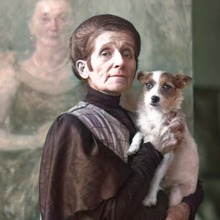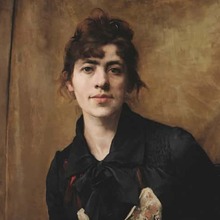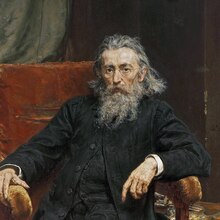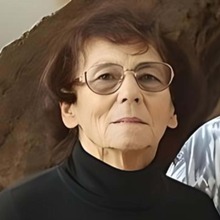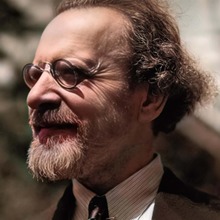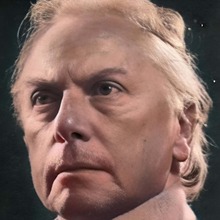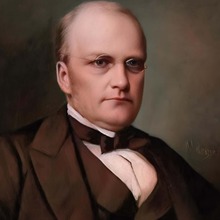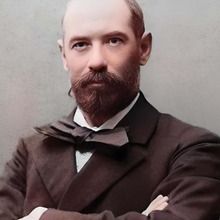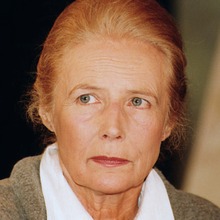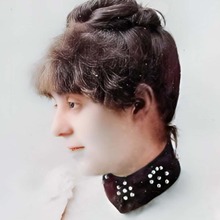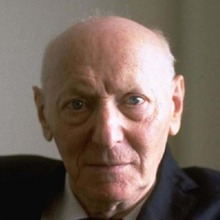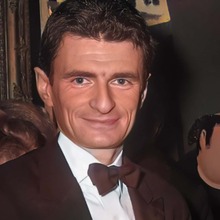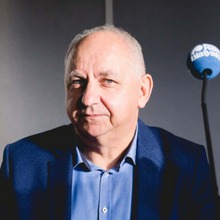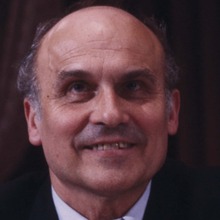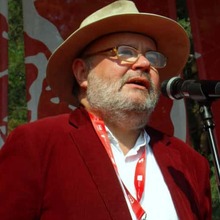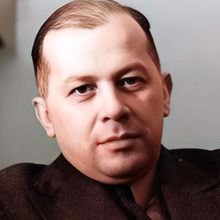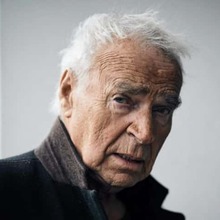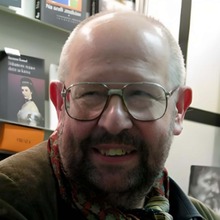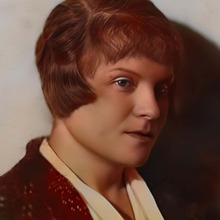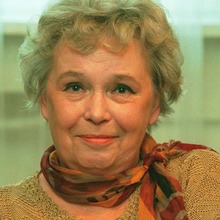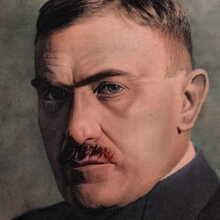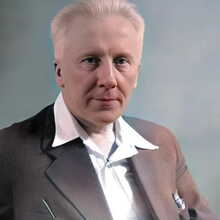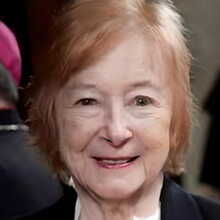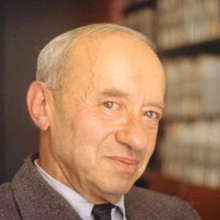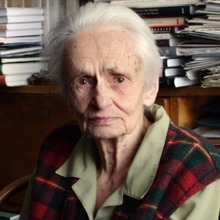 Ludwik Dorn
1954 - 2022
Deputy Prime Minister, Marshal of the Sejm
Ludwik Dorn
1954 - 2022
Deputy Prime Minister, Marshal of the Sejm
 Anna-Teresa Tymieniecka
1923 - 2014
Phenomenologist
Anna-Teresa Tymieniecka
1923 - 2014
Phenomenologist
 Nicolaus Copernicus
1473 - 1543
Heliocentric theory of the solar system
Nicolaus Copernicus
1473 - 1543
Heliocentric theory of the solar system
 Irena Kwiatkowska
1912 - 2011
Actress, cabaret artist
Irena Kwiatkowska
1912 - 2011
Actress, cabaret artist
 Stanislaw Lem
1921 - 2006
Science fiction writer and philosopher
Stanislaw Lem
1921 - 2006
Science fiction writer and philosopher
 Jozef Pilsudski
1867 - 1935
Chief of State and Marshal of Poland
Jozef Pilsudski
1867 - 1935
Chief of State and Marshal of Poland
 Helena Rubinstein
1872 - 1965
Cosmetics entrepreneur
Helena Rubinstein
1872 - 1965
Cosmetics entrepreneur
 Riad Haidar
1951 - 2023
Member of the Sejm of Poland
Riad Haidar
1951 - 2023
Member of the Sejm of Poland
 Michael Marks
1859 - 1907
Co-founder of Marks & Spencer
Michael Marks
1859 - 1907
Co-founder of Marks & Spencer
 Maria Kwasniewska
1867 - 1934
Nobel laureate in physics and chemistry
Maria Kwasniewska
1867 - 1934
Nobel laureate in physics and chemistry
 Leszek Engelking
1955 - 2022
poet, short story writer, novelist, translator
Leszek Engelking
1955 - 2022
poet, short story writer, novelist, translator
 Aleksander Jablonski
1898 - 1980
Molecular spectroscopy and photophysics
Aleksander Jablonski
1898 - 1980
Molecular spectroscopy and photophysics
 Barbara Janiszewska
1936 - 2000
Sprinter
Barbara Janiszewska
1936 - 2000
Sprinter
 Marian Hemar
1901 - 1972
Writer, songwriter, journalist
Marian Hemar
1901 - 1972
Writer, songwriter, journalist
 Wladyslaw Reymont
1867 - 1925
Novelist
Wladyslaw Reymont
1867 - 1925
Novelist
 Tomasz Wojtowicz
1953 - 2022
Volleyball player
Tomasz Wojtowicz
1953 - 2022
Volleyball player
 Augustus II the Strong
1670 - 1733
King of Poland and Elector of Saxony
Augustus II the Strong
1670 - 1733
King of Poland and Elector of Saxony
 Leopold Infeld
1898 - 1968
Relativity theory
Leopold Infeld
1898 - 1968
Relativity theory
 Grazyna Bacewicz
1909 - 1969
Composer and violinist
Grazyna Bacewicz
1909 - 1969
Composer and violinist
 John Paul II
1920 - 2005
Bishop of Rome and head of the Catholic Church
John Paul II
1920 - 2005
Bishop of Rome and head of the Catholic Church
 Jozef Noji
1909 - 1943
Long-distance runner
Jozef Noji
1909 - 1943
Long-distance runner
 Wladyslaw Szpilman
1911 - 2000
Pianist and composer
Wladyslaw Szpilman
1911 - 2000
Pianist and composer
 Wladyslaw Broniewski
1897 - 1962
Poet, writer, translator
Wladyslaw Broniewski
1897 - 1962
Poet, writer, translator
 Andrzej Badenski
1943 - 2008
400 metres runner
Andrzej Badenski
1943 - 2008
400 metres runner
 Henryk Arctowski
1871 - 1958
Polar and Antarctic researcher
Henryk Arctowski
1871 - 1958
Polar and Antarctic researcher
 Stanislaw Kot
1885 - 1975
History of culture and Reformation in Poland
Stanislaw Kot
1885 - 1975
History of culture and Reformation in Poland
 Jan Gotlib Bloch
1836 - 1902
Railway financier and war analyst
Jan Gotlib Bloch
1836 - 1902
Railway financier and war analyst
 Wladyslaw Witwicki
1878 - 1948
Psychology, philosophy, translation
Wladyslaw Witwicki
1878 - 1948
Psychology, philosophy, translation
 Teresa Remiszewska
1928 - 2002
Sailor, journalist, political activist
Teresa Remiszewska
1928 - 2002
Sailor, journalist, political activist
 Olga Boznanska
1865 - 1940
Painter
Olga Boznanska
1865 - 1940
Painter
 Janusz Glowacki
1938 - 2017
Writer and playwright
Janusz Glowacki
1938 - 2017
Writer and playwright
 Alina Szapocznikow
1926 - 1973
Sculptor and graphic artist
Alina Szapocznikow
1926 - 1973
Sculptor and graphic artist
 Kazimierz Ajdukiewicz
1890 - 1963
Logic, semantics, philosophy of science
Kazimierz Ajdukiewicz
1890 - 1963
Logic, semantics, philosophy of science
 Jerzy Plebanski
1928 - 2005
Theoretical physicist and mathematician
Jerzy Plebanski
1928 - 2005
Theoretical physicist and mathematician
 Krzysztof Gawedzki
1947 - 2022
Mathematical physics
Krzysztof Gawedzki
1947 - 2022
Mathematical physics
 Zbigniew Brzezinski
1928 - 2017
National Security Advisor
Zbigniew Brzezinski
1928 - 2017
National Security Advisor
 Pola Negri
1897 - 1987
Film actress and singer
Pola Negri
1897 - 1987
Film actress and singer
 Felicjan Slawoj Skladkowski
1885 - 1962
Prime Minister of Poland
Felicjan Slawoj Skladkowski
1885 - 1962
Prime Minister of Poland
 Tadeusz Czacki
1765 - 1813
Historian, pedagogue, numismatist
Tadeusz Czacki
1765 - 1813
Historian, pedagogue, numismatist
 Irena Sendler
1910 - 2008
Social worker and nurse
Irena Sendler
1910 - 2008
Social worker and nurse
 Stanislaw Barcewicz
1858 - 1929
Violinist, conductor and teacher
Stanislaw Barcewicz
1858 - 1929
Violinist, conductor and teacher
 Adam Asnyk
1838 - 1897
Poet and dramatist of the Positivist era
Adam Asnyk
1838 - 1897
Poet and dramatist of the Positivist era
 Gebhard Leberecht von Blucher
1742 - 1819
Field marshal
Gebhard Leberecht von Blucher
1742 - 1819
Field marshal
 Ignacy Jan Paderewski
1860 - 1941
Prime minister and foreign minister of Poland
Ignacy Jan Paderewski
1860 - 1941
Prime minister and foreign minister of Poland
 Kazimierz Funk
1884 - 1967
Biochemist
Kazimierz Funk
1884 - 1967
Biochemist
 Hipolit Cegielski
1813 - 1868
Founder of H. Cegielski - Poznań
Hipolit Cegielski
1813 - 1868
Founder of H. Cegielski - Poznań
 Jacek Kaczmarski
1957 - 2004
Singer, songwriter, poet and author
Jacek Kaczmarski
1957 - 2004
Singer, songwriter, poet and author
 Samuel Willenberg
1923 - 2016
Sonderkommando at Treblinka and participant
Samuel Willenberg
1923 - 2016
Sonderkommando at Treblinka and participant
 Wladyslaw Hasior
1928 - 1999
Sculptor, painter, set designer
Wladyslaw Hasior
1928 - 1999
Sculptor, painter, set designer
 Aleksander Doba
1946 - 2021
Ocean kayaker
Aleksander Doba
1946 - 2021
Ocean kayaker
 Zygmunt Bauman
1925 - 2017
Sociologist and philosopher
Zygmunt Bauman
1925 - 2017
Sociologist and philosopher
 Leon Petrazycki
1867 - 1931
Legal scholar
Leon Petrazycki
1867 - 1931
Legal scholar
 Wojciech Karpinski
1943 - 2020
Writer, historian of ideas, literary critic
Wojciech Karpinski
1943 - 2020
Writer, historian of ideas, literary critic
 Jerzy Grotowski
1933 - 1999
Theatre director and theorist
Jerzy Grotowski
1933 - 1999
Theatre director and theorist
 Kazimierz Kutz
1929 - 2018
Film director, author, journalist and politician
Kazimierz Kutz
1929 - 2018
Film director, author, journalist and politician
 Wojciech Has
1925 - 2000
Film director, screenwriter and film producer
Wojciech Has
1925 - 2000
Film director, screenwriter and film producer
 Stanislaw August Poniatowski
1732 - 1798
King of Poland and Grand Duke of Lithuania
Stanislaw August Poniatowski
1732 - 1798
King of Poland and Grand Duke of Lithuania
 Jan III Sobieski
1629 - 1696
King of Poland and Grand Duke of Lithuania
Jan III Sobieski
1629 - 1696
King of Poland and Grand Duke of Lithuania
 Georges Charpak
1924 - 2010
Particle detector inventor
Georges Charpak
1924 - 2010
Particle detector inventor
 Jadwiga Grabowska-Hawrylak
1920 - 2018
Architect of post-war Wrocław
Jadwiga Grabowska-Hawrylak
1920 - 2018
Architect of post-war Wrocław
 Daniel Passent
1938 - 2022
Journalist and writer for Polityka
Daniel Passent
1938 - 2022
Journalist and writer for Polityka
 Janusz Korczak
1878 - 1942
Pediatrician, children's author, pedagogue
Janusz Korczak
1878 - 1942
Pediatrician, children's author, pedagogue
 Kazimierz Zimny
1935 - 2022
Long-distance runner
Kazimierz Zimny
1935 - 2022
Long-distance runner
 Francoise Frenkel
1889 - 1975
Writer and bookseller
Francoise Frenkel
1889 - 1975
Writer and bookseller
 Witold Pilecki
1901 - 1948
Cavalry officer, intelligence agent
Witold Pilecki
1901 - 1948
Cavalry officer, intelligence agent
 Emil Zegadlowicz
1888 - 1941
Expressionist poet and novelist
Emil Zegadlowicz
1888 - 1941
Expressionist poet and novelist
 Edward Abramowski
1868 - 1918
Philosopher, psychologist, sociologist
Edward Abramowski
1868 - 1918
Philosopher, psychologist, sociologist
 Roman Aftanazy
1914 - 2004
Author of History of Residences
Roman Aftanazy
1914 - 2004
Author of History of Residences
 Jerzy Kosinski
1933 - 1991
Novelist and two-time president
Jerzy Kosinski
1933 - 1991
Novelist and two-time president
 Michal Bergson
1820 - 1898
Composer and pianist
Michal Bergson
1820 - 1898
Composer and pianist
 Tomasz Arciszewski
1877 - 1955
Prime Minister of Poland in exile
Tomasz Arciszewski
1877 - 1955
Prime Minister of Poland in exile
 Sylwester Checinski
1930 - 2021
Film and television director and screenwriter
Sylwester Checinski
1930 - 2021
Film and television director and screenwriter
 Pawel Huelle
1957 - 2023
Novelist
Pawel Huelle
1957 - 2023
Novelist
 Teresa Cieply
1937 - 2006
Olympic medalist in athletics
Teresa Cieply
1937 - 2006
Olympic medalist in athletics
 Zbigniew Namyslowski
1939 - 2022
Jazz saxophonist, composer and arranger
Zbigniew Namyslowski
1939 - 2022
Jazz saxophonist, composer and arranger
 Barbara Skarga
1919 - 2009
Philosophy historian and philosopher
Barbara Skarga
1919 - 2009
Philosophy historian and philosopher
 Stanislaw Baranczak
1946 - 2014
poet, literary critic, translator
Stanislaw Baranczak
1946 - 2014
poet, literary critic, translator
 Jadwiga Wajs
1912 - 1990
Discus thrower
Jadwiga Wajs
1912 - 1990
Discus thrower
 Barbara Krafftowna
1928 - 2022
film and theater actress
Barbara Krafftowna
1928 - 2022
film and theater actress
 Danuta Siedzikowna
1928 - 1946
Medical orderly in the Home Army
Danuta Siedzikowna
1928 - 1946
Medical orderly in the Home Army
 Zygmunt Stojowski
1870 - 1946
Composer and pianist
Zygmunt Stojowski
1870 - 1946
Composer and pianist
 Jan Heweliusz
1611 - 1687
Astronomer, brewer, mayor of Gdańsk
Jan Heweliusz
1611 - 1687
Astronomer, brewer, mayor of Gdańsk
 Jaroslaw Marek Rymkiewicz
1935 - 2022
Poet, essayist, dramatist, translator
Jaroslaw Marek Rymkiewicz
1935 - 2022
Poet, essayist, dramatist, translator
 wladyslaw Komar
1940 - 1998
Shot putter
wladyslaw Komar
1940 - 1998
Shot putter
 Wieslaw Maniak
1938 - 1982
Olympic medalist and European champion
Wieslaw Maniak
1938 - 1982
Olympic medalist and European champion
 Janusz Sidlo
1933 - 1993
Javelin thrower
Janusz Sidlo
1933 - 1993
Javelin thrower
 Marian Foik
1933 - 2005
Sprinter
Marian Foik
1933 - 2005
Sprinter
 Janusz Kupcewicz
1955 - 2022
Midfielder
Janusz Kupcewicz
1955 - 2022
Midfielder
 Fritz Todt
1891 - 1942
Construction engineer and senior Nazi figure
Fritz Todt
1891 - 1942
Construction engineer and senior Nazi figure
 Henryk Mikolaj Gorecki
1933 - 2010
Composer of contemporary classical music
Henryk Mikolaj Gorecki
1933 - 2010
Composer of contemporary classical music
 Anna Jablonowska
1935 - 2010
poet and translator
Anna Jablonowska
1935 - 2010
poet and translator
 Feliks Ankerstein
1897 - 1955
Polish Army major and intelligence officer
Feliks Ankerstein
1897 - 1955
Polish Army major and intelligence officer
 Loda Halama
1911 - 1996
Primabalerina of Grand Theatre, Warsaw
Loda Halama
1911 - 1996
Primabalerina of Grand Theatre, Warsaw
 Tadeusz Boy-Zelenski
1874 - 1941
Writer and translator of French literature
Tadeusz Boy-Zelenski
1874 - 1941
Writer and translator of French literature
 Henryk Grohman
1862 - 1939
Textile manufacturer
Henryk Grohman
1862 - 1939
Textile manufacturer
 Krzysztof Kamil Baczynski
1921 - 1944
Poet and Home Army soldier
Krzysztof Kamil Baczynski
1921 - 1944
Poet and Home Army soldier
 Jozef Haller
1873 - 1960
Lieutenant general of the Polish Army
Jozef Haller
1873 - 1960
Lieutenant general of the Polish Army
 Myer Prinstein
1878 - 1925
Track and field athlete
Myer Prinstein
1878 - 1925
Track and field athlete
 Szymon Askenazy
1865 - 1935
Historian, educator, statesman and diplomat
Szymon Askenazy
1865 - 1935
Historian, educator, statesman and diplomat
 Kazimierz Przerwa-Tetmajer
1865 - 1940
Poet, novelist, playwright, journalist
Kazimierz Przerwa-Tetmajer
1865 - 1940
Poet, novelist, playwright, journalist
 Jan Kozielewski
1914 - 2000
Courier for the Polish Underground
Jan Kozielewski
1914 - 2000
Courier for the Polish Underground
 Gabriela Zapolska
1857 - 1921
Novelist, playwright, naturalist writer
Gabriela Zapolska
1857 - 1921
Novelist, playwright, naturalist writer
 Ignacy Lukasiewicz
1822 - 1882
Inventor of the kerosene lamp
Ignacy Lukasiewicz
1822 - 1882
Inventor of the kerosene lamp
 Kazimierz Deyna
1947 - 1989
Attacking midfielder
Kazimierz Deyna
1947 - 1989
Attacking midfielder
 Agenor Maria Goiuchowski
1849 - 1921
Foreign Minister
Agenor Maria Goiuchowski
1849 - 1921
Foreign Minister
 Frederic Chopin
1810 - 1849
Romantic composer and virtuoso pianist
Frederic Chopin
1810 - 1849
Romantic composer and virtuoso pianist
 Mikhail Artsybashev
1878 - 1927
Writer, Playwright
Mikhail Artsybashev
1878 - 1927
Writer, Playwright
 Ulrich Schrade
1943 - 2009
philosopher, educationist and ethicist
Ulrich Schrade
1943 - 2009
philosopher, educationist and ethicist
 Henryk Sienkiewicz
1846 - 1916
Novelist and journalist
Henryk Sienkiewicz
1846 - 1916
Novelist and journalist
 Jerzy Chromik
1931 - 1987
Long-distance runner
Jerzy Chromik
1931 - 1987
Long-distance runner
 Halina Konopacka
1900 - 1989
Discus thrower
Halina Konopacka
1900 - 1989
Discus thrower
 Ryszard Kuklinski
1930 - 2004
CIA agent, Polish colonel
Ryszard Kuklinski
1930 - 2004
CIA agent, Polish colonel
 Georges Nomarski
1919 - 1997
Creator of differential interference microscopy
Georges Nomarski
1919 - 1997
Creator of differential interference microscopy
 Bronislaw Malinowski
1884 - 1942
Founder of social anthropology and fieldwork
Bronislaw Malinowski
1884 - 1942
Founder of social anthropology and fieldwork
 Carl Philipp Gottfried von Clausewitz
1780 - 1831
Prussian general and military strategist
Carl Philipp Gottfried von Clausewitz
1780 - 1831
Prussian general and military strategist
 Roman Dmowski
1864 - 1939
Leader of National Democracy
Roman Dmowski
1864 - 1939
Leader of National Democracy
 Elzbieta Krzesinska
1934 - 2015
Long jumper
Elzbieta Krzesinska
1934 - 2015
Long jumper
 Jan Matejko
1838 - 1893
History painter
Jan Matejko
1838 - 1893
History painter
 Henryk Niewodniczanski
1900 - 1968
Nuclear physics
Henryk Niewodniczanski
1900 - 1968
Nuclear physics
 Konstanty Antoni Gorski
1859 - 1924
Composer, violinist, organist, music teacher
Konstanty Antoni Gorski
1859 - 1924
Composer, violinist, organist, music teacher
 Jedrzej Moraczewski
1870 - 1944
Prime Minister of Poland
Jedrzej Moraczewski
1870 - 1944
Prime Minister of Poland
 Zdzislaw Krzyszkowiak
1929 - 2003
Runner
Zdzislaw Krzyszkowiak
1929 - 2003
Runner
 Jan Twardowski
1915 - 2006
Poet and Catholic priest
Jan Twardowski
1915 - 2006
Poet and Catholic priest
 Edward Gierek
1913 - 2001
First Secretary of Polish United Workers' Party
Edward Gierek
1913 - 2001
First Secretary of Polish United Workers' Party
 Anna Bilinska-Bohdanowicz
1854 - 1893
Portrait painter
Anna Bilinska-Bohdanowicz
1854 - 1893
Portrait painter
 Jerzy Trela
1942 - 2022
Theatre and film actor
Jerzy Trela
1942 - 2022
Theatre and film actor
 Maria Dworzecka
1941 - 2023
Computational nuclear physicist
Maria Dworzecka
1941 - 2023
Computational nuclear physicist
 Ferdynand Goetel
1890 - 1960
Novelist, playwright, essayist, screenwriter
Ferdynand Goetel
1890 - 1960
Novelist, playwright, essayist, screenwriter
 Wladyslaw Natanson
1864 - 1937
Theoretical physics
Wladyslaw Natanson
1864 - 1937
Theoretical physics
 Adam Zagajewski
1945 - 2021
Poet, novelist, translator, and essayist
Adam Zagajewski
1945 - 2021
Poet, novelist, translator, and essayist
 Jozef Beck
1894 - 1944
Foreign minister of Poland
Jozef Beck
1894 - 1944
Foreign minister of Poland
 Bronislaw Geremek
1932 - 2008
Minister of Foreign Affairs of Poland
Bronislaw Geremek
1932 - 2008
Minister of Foreign Affairs of Poland
 Wislawa Szymborska
1923 - 2012
Poet and essayist
Wislawa Szymborska
1923 - 2012
Poet and essayist
 Maksymilian Maria Kolbe
1894 - 1941
Founder of Militia of Mary Immaculate
Maksymilian Maria Kolbe
1894 - 1941
Founder of Militia of Mary Immaculate
 Adam Schaff
1913 - 2006
Marxist philosopher and ideologue
Adam Schaff
1913 - 2006
Marxist philosopher and ideologue
 Adam Kozlowiecki
1911 - 2007
Archbishop of Lusaka
Adam Kozlowiecki
1911 - 2007
Archbishop of Lusaka
 Ewa Demarczyk
1941 - 2020
singer
Ewa Demarczyk
1941 - 2020
singer
 Wladyslaw Bartoszewski
1922 - 2015
Historian, journalist, politician
Wladyslaw Bartoszewski
1922 - 2015
Historian, journalist, politician
 Wojciech Dlugoraj
1557 - 1619
Renaissance composer and lutenist
Wojciech Dlugoraj
1557 - 1619
Renaissance composer and lutenist
 Stefan Jaracz
1883 - 1945
Theatre actor and producer
Stefan Jaracz
1883 - 1945
Theatre actor and producer
 Miron Bialoszewski
1922 - 1983
Poet, novelist, playwright, actor
Miron Bialoszewski
1922 - 1983
Poet, novelist, playwright, actor
 Andrzej Panufnik
1914 - 1991
Composer and conductor
Andrzej Panufnik
1914 - 1991
Composer and conductor
 Krzysztof Penderecki
1933 - 2020
Composer and conductor of classical music
Krzysztof Penderecki
1933 - 2020
Composer and conductor of classical music
 Maria Dabrowska
1889 - 1965
Novelist, critic, translator
Maria Dabrowska
1889 - 1965
Novelist, critic, translator
 Xawery Dunikowski
1875 - 1964
Sculptor and artist
Xawery Dunikowski
1875 - 1964
Sculptor and artist
 Witold Gombrowicz
1904 - 1969
Novelist, playwright, diarist
Witold Gombrowicz
1904 - 1969
Novelist, playwright, diarist
 Ignacy Feliks Dobrzynski
1807 - 1867
Composer, pianist, conductor, teacher
Ignacy Feliks Dobrzynski
1807 - 1867
Composer, pianist, conductor, teacher
 Zdzislaw Jachimecki
1882 - 1953
Historian of music, professor
Zdzislaw Jachimecki
1882 - 1953
Historian of music, professor
 Stefan Gierowski
1925 - 2022
Painter and professor
Stefan Gierowski
1925 - 2022
Painter and professor
 Magdalena Abakanowicz
1930 - 2017
Sculptor and fiber artist
Magdalena Abakanowicz
1930 - 2017
Sculptor and fiber artist
We Need -- admin in

